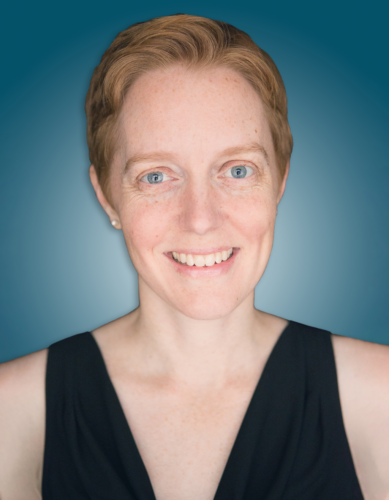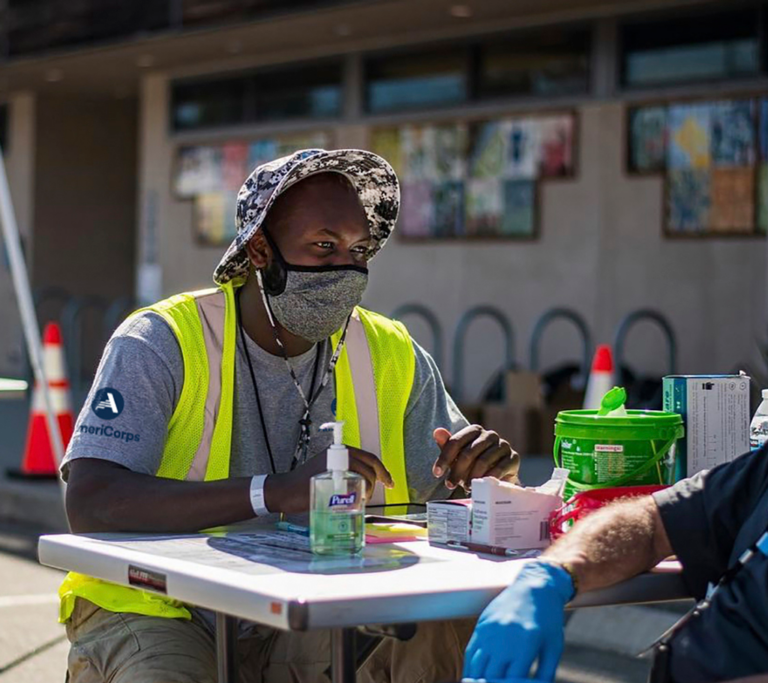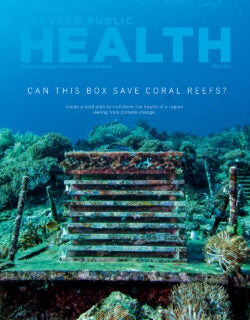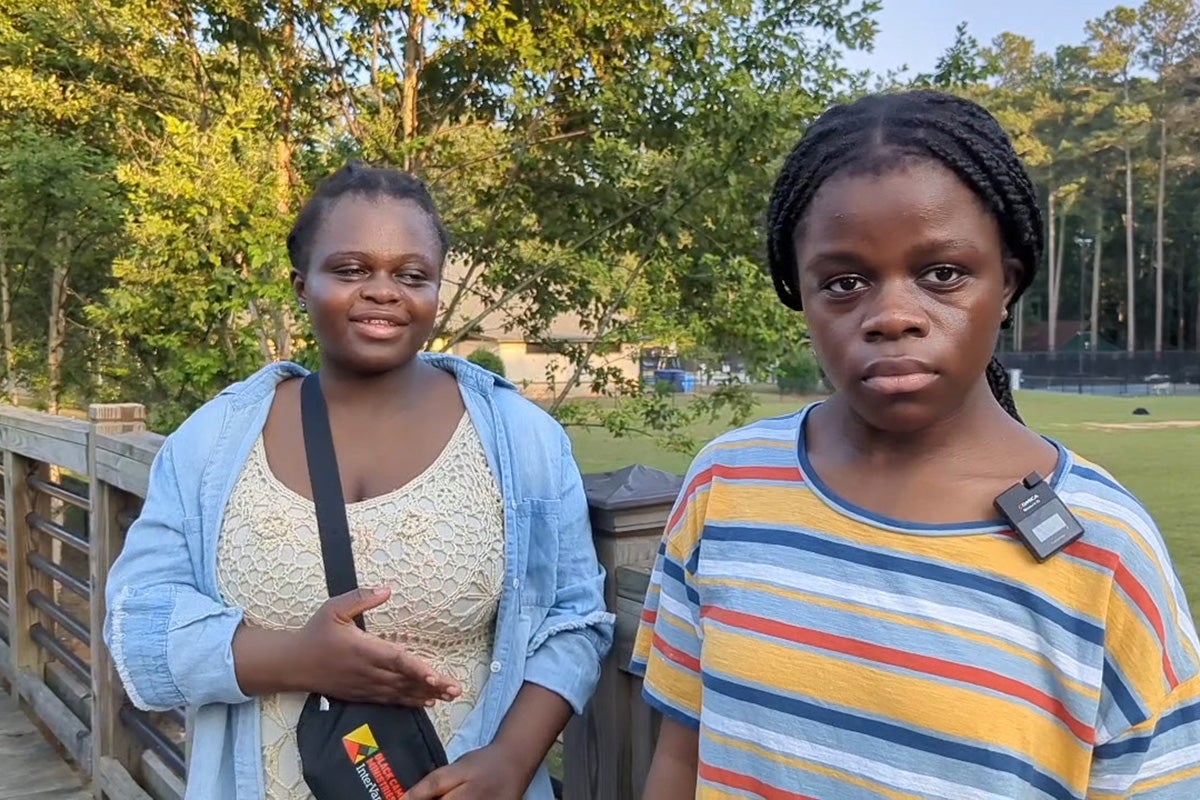Ideas
Investing in public health as a public service
Even before the COVID-19 pandemic hit, the U.S. public health workforce was in crisis. At least 38,000 state and local jobs disappeared in the wake of the 2008 recession, according to a 2020 analysis by The Associated Press and Kaiser Health News. The capacity gap has only grown larger over the past year as burned-out workers quit in droves. A new collaboration between AmeriCorps and the U.S. Centers for Disease Control and Prevention (CDC) aims to provide short-term relief in hard-hit areas and to open new pathways toward public health careers.

In all, up to 5,000 temporary service positions in public health agencies, governments, and nonprofits are expected to be funded over the next five years by Public Health AmeriCorps, which is supported by a $400 million investment from the American Rescue Plan Act.
The agency is now in the process of approving grants to local jurisdictions and organizations. The AmeriCorps team will then help with recruiting and provide living allowances to the participants. The key requirement: These temporary positions, lasting nine months to a year, must be oriented toward meaningful contributions to public health, not office busywork.
“At AmeriCorps, we’re really about helping build sustainability,” says Karen Dahl, senior adviser for the agency’s COVID-19 work. “The goal is, when a member moves on from a position, they leave the place stronger than when they arrived.”
Sign up for Harvard Public Health
Delivered to your inbox weekly.
Dahl recently spoke with Associate Editor Amy Roeder about the new program.
Q: What types of roles will Public Health AmeriCorps members be taking on?
A: AmeriCorps is very focused on making sure that communities get what they need, but we have made some recommendations around what the roles can be. Right now, it’s all about COVID response and recovery. Disaster and surge-capacity support is a big need, and members can be there to provide an extra set of hands.
But we have all seen that COVID has impacted the country in terrible ways, and in many cases exacerbated inequities. Members may be needed to staff vaccination clinics, but they may also be called on to address other public health needs as communities recover from the pandemic.
One way that we’ve seen members in our other programs contribute in health settings is by helping patients navigate services, especially in places where there isn’t the capacity for someone to sit and help an individual figure out next steps.

Q: Is there an ideal candidate for these positions?
A: Historically, public health has been a sector in which advanced degrees are perceived to be needed. There aren’t a lot of other clear pathways.
People who have a master’s degree are certainly welcome to apply for these positions, but we’re really hoping to reach as many people as possible. So, we’re keeping the requirements broad. A candidate could be a recent high school or college graduate who heard about public health last year and wants to get involved. There may be some folks who stepped up to volunteer during the pandemic for contact tracing or vaccine ambassador programs. Some may have an undergraduate or community college certification in public health, but there isn’t necessarily an obvious next step for them to take. This could be that step.
Q: What’s the long-term vision for the program?
A: AmeriCorps hopes that this is just the beginning and that we can extend our partnership with the CDC. The vision is to expand the scope of what public health work can look like for folks and make it more accessible. Ideally, many of the members who take on these roles will be inspired to move on to careers in public health and government and help communities rebuild.
The pandemic has made many of us feel so powerless over the past two years. I’m grateful to be able to support a program focused on this very major effort to rebuild the public health workforce. If we could make even the tiniest dent in the need—and expose our Public Health AmeriCorps members to new career opportunities—that would be very exciting.



